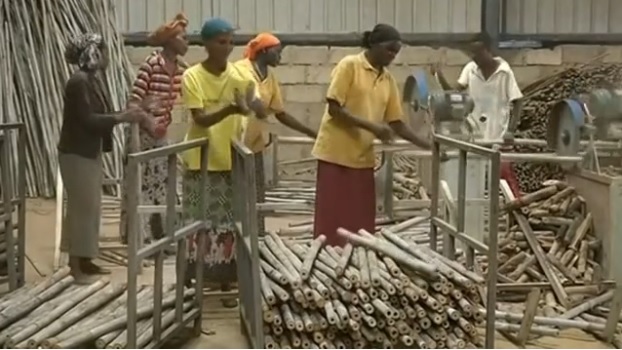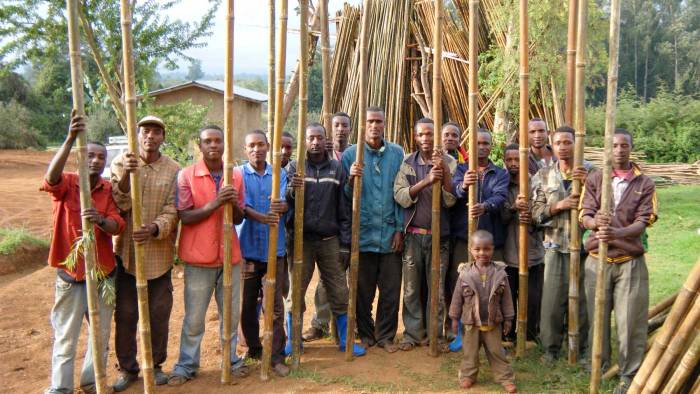
source
The solution to all of Ethiopia’s problems could be growing right in people’s backyards. The country’s bamboo industry is showing promise. According to Ethiopia’s State Minister for Agriculture and Rural Development, Mitiku Kassa: “Ethiopia has the resources, the investment, a rapidly-developing manufacturing industry and a strong demand for our bamboo products from foreign markets. We have what we need. The expansion of Africa’s bamboo sector has begun.”
Tapping into the global market
It is estimated that the global market for bamboo is worth $60 billion. And two-thirds of all the bamboo in Africa lies within Ethiopia. Felix Boeck, an associate engineer at Africa Bamboo PLC – which is a forestry, wood processing and bio-energy company that is primarily using bamboo as feedstock, believes that the sector has a huge potential in Ethiopia.
“The market potential of bamboo in Europe is massive. We believe that there can be a reliable and effective supply chain built here in Ethiopia to create a bamboo manufacturing industry,” Boeck said.
The global bamboo trade is noticing Ethiopia as a great investment. The International Network for Bamboo and Rattan, called INBAR, is an intergovernmental organisation that helps governments, businesses, and local communities to identify innovative bamboo-based opportunities for human development. The organisation which is headquartered in Beijing, a the center of the global market for bamboo, is now represented in Addis-Abba. The East Africa Regional Coordinator for INBAR, Fu Jinhe, said that China and Ethiopia are a great match.
“China has the technology, the capital, and the international market. Ethiopia has the resource. If they are working together, it’s perfect, and you can produce high-quality products for international and domestic markets.”

Alleviating poverty
Investing in the bamboo industry has the potential to reduce poverty in Ethiopia and many farmers are eager to participate in the development of the sector.
“I am just making enough money to subsist by producing bamboo for the local craft market and, if I had the opportunity, I would like to increase my capacity for skilled production and a better financial return,” said Ghetnet Melaku, a small-scale farmer.
Bamboo is easy to grow, easy to harvest, and can be collected every year. It can also create jobs within the country . Developing the sector involves several stages in the value chain and the work can all be done by local communities.
“The farmer who has bamboo is rich, but he doesn’t know it,” said Adane Berhe, the CEO PLC.

Helping the environment
Bamboo can be used as a complement and a substitute for timber wood, which could help solve two major issues: the deforestation problem and the low housing supply. In East Africa, the supply of housing has not been able to meet the demand – causing a shortage. Tapping into the bamboo supply and using it as building materials could help create more safe and affordable housing. In addition to housing, bamboo can be used in laminated boards, flooring, decking, and textiles.
“The fastest-growing market in Europe for the wood industry is flooring and outdoor decking. We expect our products to play a large role in this market,” Boeck said.
In Ethiopia, deforestation has caused the loss of about one-third of the country’s south-west forest cover over the past 40 years. The authorities can plant bamboo trees, which are fast-maturing, in affected areas.

SEE ALSO: Discover Ethiopia’s Booming Luxury Housing Sector.






